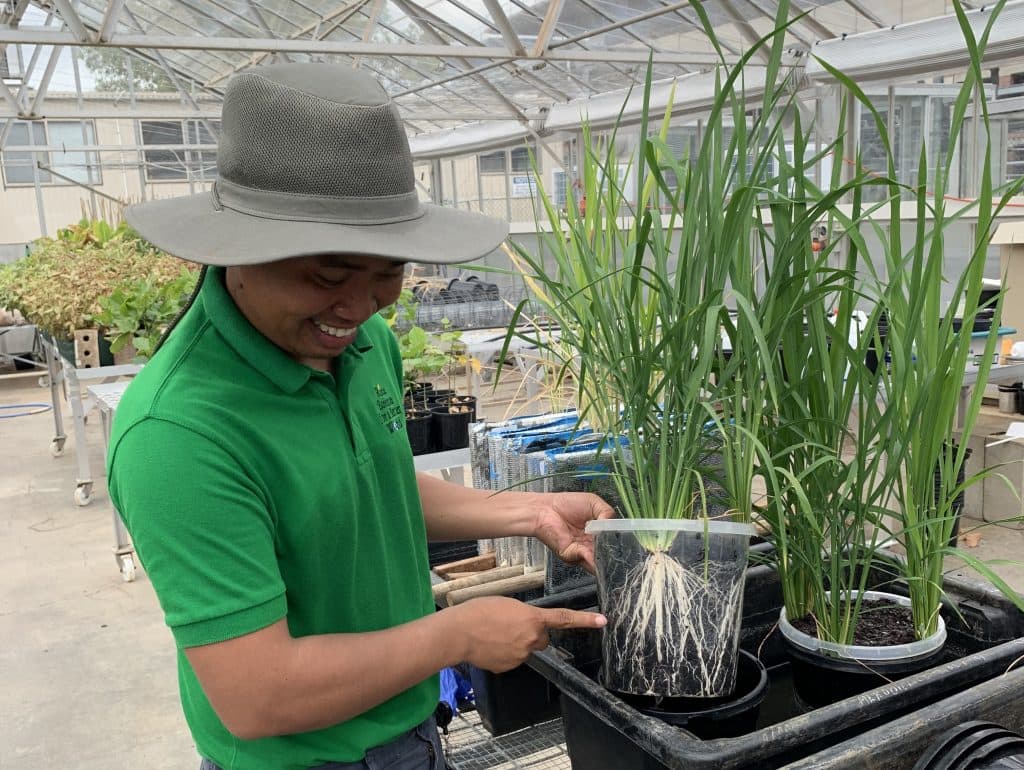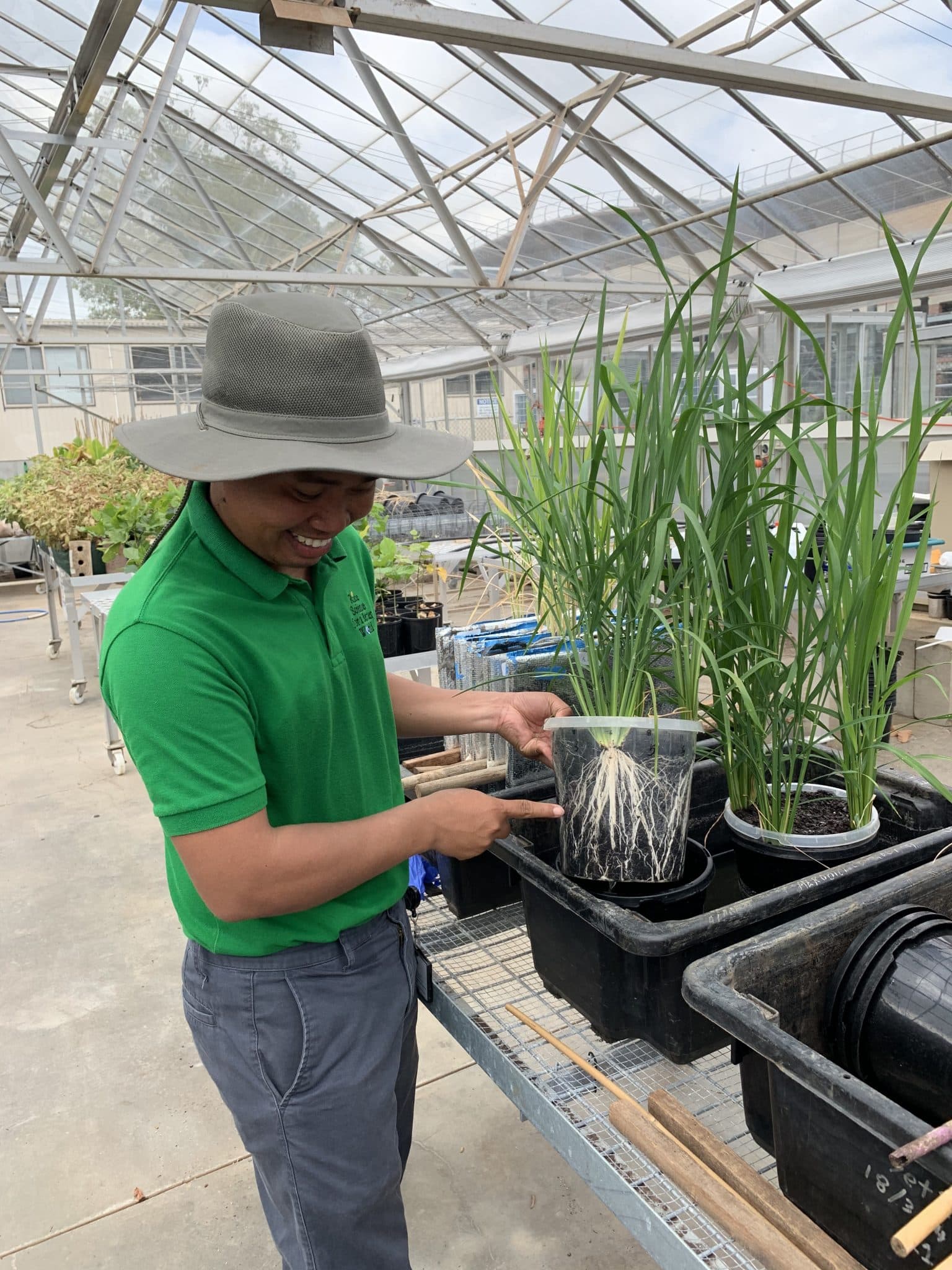Ricky’s research aims to show the advantages of improved root system architecture (narrower and deeper roots), through physiological characterisation and identification of key traits.
The genomic regions that control root traits and cold tolerance have been identified as key influencers in rice breeding for AP. This research will develop molecular markers that can be used for precise introgression into elite germplasm by the breeding program.

Why is this research project important?
With water for agricultural production becoming more limited, the challenge now is to increase food and agricultural productivity while adapting to and mitigating the effects of this declining resource.
While it’s early days, and knowledge is still limited, AP systems are a promising alternative to traditional flooded culture, using less water, reduced greenhouse gas emissions and require less labour units.
Traditionally, rice is grown in permanent water (PW; flooded) systems. As such, most of the research into physiological traits and genomic regions associated with key traits, has been conducted in PW environments.
A greater understanding of key AP adaptation traits including improved root system architecture (narrow, deep roots), cold tolerance, and associated genomic regions is needed to advance our understanding and potential to exploit AP systems as a more sustainable rice production method.
This project seeks to unravel key AP adaptation traits through the utilisation of multiple approaches, genomics and physiological techniques. Understanding the key traits and their relationship with grain yield will help increase the water productivity of rice and help stabilise yields across different environmental conditions. Identification of genomic regions and the development of markers will pave the way for the potential introgression of stable and environment-specific high value genes/loci into breeding programs for AP systems.











